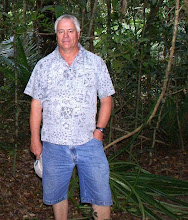 The one remaining sugarcane plantation in Hawaii, HC&S on Maui, has avoided getting the plug pulled on them for at least one more year, so they will continue planting sugarcane for at least another full year. My guess is that the decision to extend their life was hotly debated, the debate being driven by several factors.
The one remaining sugarcane plantation in Hawaii, HC&S on Maui, has avoided getting the plug pulled on them for at least one more year, so they will continue planting sugarcane for at least another full year. My guess is that the decision to extend their life was hotly debated, the debate being driven by several factors.Firstly, profitability or the lack thereof. HC&S reported losses of $13 million in 2008 and an estimated $30 million in 2009, primarily due to lowered yields resulting from a 3-year drought, and imposed water restrictions. The drought and water restrictions have caused sugar cane production at HC&S to fall from 200,000 tons six years ago to 127,000 tons in 2009. More favorable prices for sugar and an expected improvement in the long-term weather situation undoubtedly weighed into the final decision to extend the life of the plantation.
Secondly, the parent company, Alexander & Baldwin, recognizes that HC&S is positioned as well as any company could possibly be, not only in Hawaii but anywhere in the U.S., to produce renewable energy from a short-rotation crop. After all, who else in the U.S. is capable of producing well over 100 tons of fresh weight biomass and 13 tons sugar every two years per acre of land, and do it by harvesting incrementally throughout almost the entire year. HC&S has the advantages that other biomass producers in the U.S. can only dream about having. Even Brazil's sugarcane yields, as much as they have improved over the past 20 years, fall short of the yield potential that HC&S has demonstrated in the past as an energy crop plantation.
Lastly, the State Commission on Water Resource Management has yet to rule on a dispute between HC&S and environmental activists, Native Hawaiians, and farmers over water the sugar mill diverts from 19 East Maui streams, and the Commission may not rule in the plantation's favor. An unfavorable ruling would pretty much spell the end of the plantation.

1 comment:
I'm glad they got another year, especially with the energy crop potential. I don't know anything about the case, but hopefully the court ruling won't shut them down, either.
Post a Comment